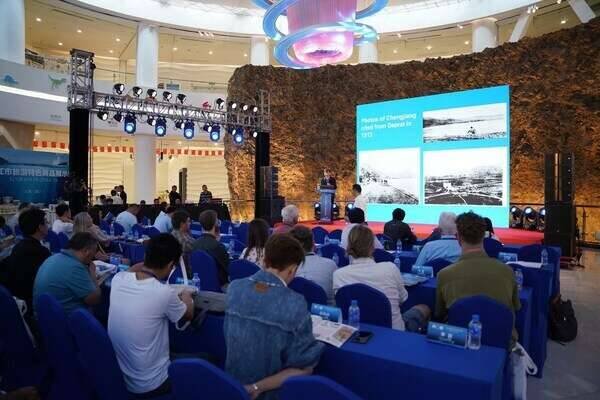
- media@moneyinfocus.news

The “40th Anniversary, Discovery of Chengjiang Biota — International Palaeontological Forum” kicked off on July 2 in Chengjiang, Yuxi, Southwest China’s Yunnan Province, and will last to July 6.
This international forum aims to look back on the cooperation results in recent years, share experience, and look forward to the future.
By leveraging the strengths of domestic and foreign research institutions, the forum seeks to deepen international cooperation in scientific research.
Experts and scholars from China, the United Kingdom, the United States, the Republic of Korea and Switzerland, have attended the forum.
A total of 39 oral presentations and six academic posters will be presented to focus on domestic and foreign research achievements in life evolution in the early Cambrian Age.
Located on the shores of Fuxian Lake in the central part of Yunnan Province, the Chengjiang Biota is known as a “world-class treasure trove for fossils”.
On July 1, 2012, the Chengjiang Biota was inscribed on the UNESCO World Heritage List, becoming China’s first and Asia’s only fossil world natural heritage site.
To date, more than 20 phyla and over 300 species of rare Cambrian fossils have been discovered in the Chengjiang Biota, with 80 percent of them being new species. The Chengjiang Fossil Site World Natural Heritage Museum now has a collection of over 60,000 specimens.

We are a dynamic daily channel dedicated to delivering essential insights on economics, business, and politics—empowering professionals and decision-makers to navigate a complex and fast-evolving world. Our content blends in-depth reporting, exclusive analysis, and strategic interviews to help readers stay informed, anticipate opportunities, and make smarter decisions. Connect with us at info@moneyinfocus.news
to collaborate or learn more.













